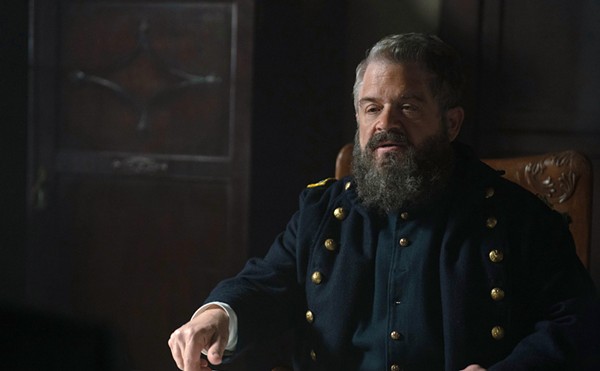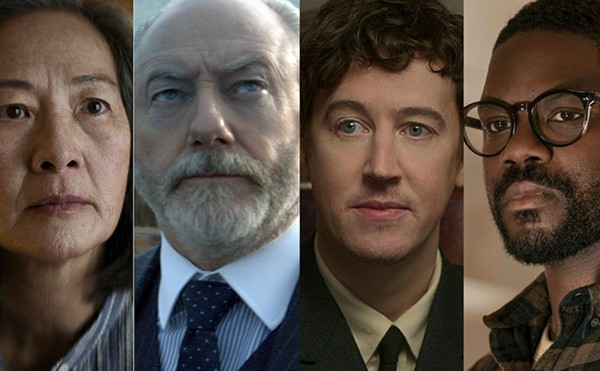It’s really about that famous line: You may not be interested in war, but war is interested in you. Particlarly when there’s no clear borderlines anymore to war. ... People don’t play by the same rules, and borders aren’t as impermeable as they used to be,” says scholar, author, and filmmaker Jim Der Derian. Der Derian is in town this week for the American premiere of the first documentary produced by the Global Media Project, which he co-founded at Brown University. Human Terrain: War Becomes Academic, examines the moral and philosophical ramifications of Human Terrain System, a cultural-awareness movement the military co-opted from the ivory tower and attempted to adapt to its counterinsurgency operations in Iraq and Afghanistan. The film took a deeply personal turn when Michael Bhatia, a friend and colleague who joined the controversial program in Afghanistan, became its first casualty.
San Antonio author John Phillip Santos, who collaborates with Der Derian in the Global Media Project, is assisting in the organization of a second screening and panel at UTSA on Monday; watch the Curblog, online at sacurrent.com, for details. You can watch a trailer for the film, which took the Audience Award at Florence’s Festival Dei Popoli, and learn more about Human Terrain System and the fights over its funding and role, at humanterrainmovie.com.
Human Terrain/War Becomes Academic
7pm Fri, Feb 12
Northrup Hall 040, Trinity University
Cosponsored by Bihl Haus Arts
Der Derian spoke with the Current by phone last week.
What exactly do they do in the field, these anthropologists, once they’re trained with the military?
Their duties are largely to understand the locals. But it has varying levels of — let’s put it this way — of precision. Because on the one hand they’re supposed to be collecting enormous amounts of minute details — everything from how much kerosene is being purchased in the markets to which tribal leader has a grievance with the tribal leader down the road. So they’re putting this all together and trying to show through these kind of diagrams and through these data-mining techniques where the social connections are, and where the relationships are friendly and where they’re hostile — so there’s a wide spectrum that they’re investigating.
Some of the anthropologists who have participated have expressed concerns, especially about the oversight and then the pressure when you’re on the battlefield to use whatever tools come to hand, including this research.
Yeah. Well, the anthropologists are understandably sensitive to the issue of working with the military, particularly working with the military in interventions that are considered to be less than humanitarian or justifiable — Iraq fits in that category. And indeed, Michael Bhatia, who is featured in the film, expressed as much to me and to other colleagues through emails — that he would not do this if it were Iraq. Afghanistan — was it more of a just war? Is it still a just war? That has led the anthropologists to set up commissions to study this question, and while they haven’t outright condemned, they’ve come pretty close to saying, based on previous occasions when anthropologists were effectively complicit in unjust wars, going back to Vietnam, or even earlier imperial outings by the British, the anthropologists decided to pretty much rebuke those who took on these jobs.
One thinks also of the use of psychologists in some of the “dirty wars” in South America — although I think that was much more overtly from the beginning meant to be a tool of the oppressor.
Yeah, if you’re thinking in terms of Nicaragua and how psychological warfare was used — psyops as they call it — you might be able to draw a line and show how this program shares some common aspects because of the importance of information in warfare in any type of modern counterinsurgency. But I think the Human Terrain System was more about trying to get academics out into the field, lowering — what is probably the most difficult thing to do in warfare — lowering the casualty rates of innocent people. But you’ve got to ask, what’s the corollary of that? Was it then to heighten the efficacy of the military in targeting bad guys? Should that be the role of academics? Is that what we signed on for, or is it in some way diametrically opposed to the sort of do-no-harm of our professions? •














